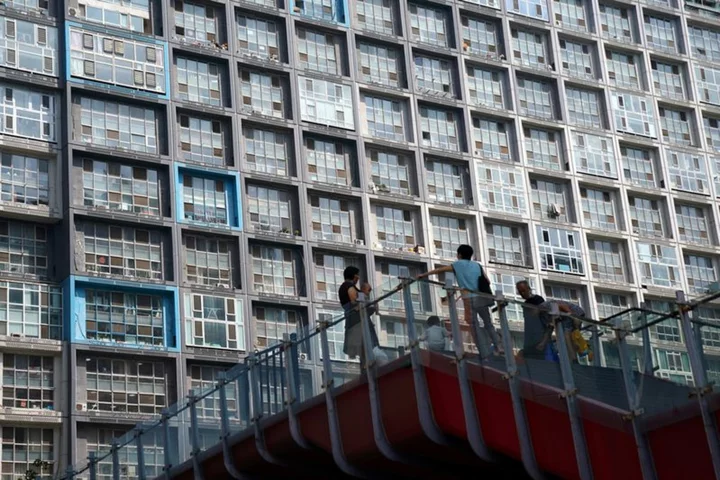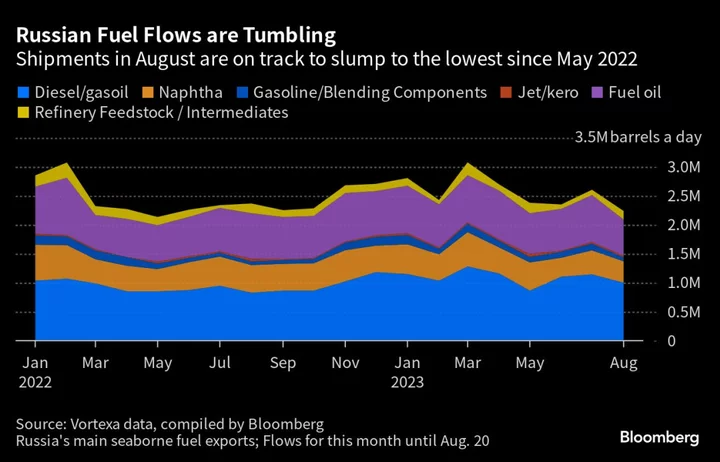By Liangping Gao, Ella Cao and Marius Zaharia
BEIJING/HONG KONG Shanghai businesswoman Kate Ren might have hoped that after Chinese leaders removed the slogan "houses are for living, not for speculation" from the nation's policymaking dogma last month, someone would bid for her properties.
She hasn't received a single phone call.
"I no longer live in fantasy," said Ren, who used to own six apartments and is trying to sell the last two of them. "The glorious days of immediate profits after a purchase are gone."
China's top leaders first introduced that phrase at their annual meeting on the economy in December 2016, marking the beginning of a series of tighter rules in the property market that eventually led to the bursting of the bubble in 2021.
Its removal from a key policy document last month was seen as a major signal that policymakers would unwind some of those curbs in an attempt to shore up the battered industry, which accounts for around a quarter of economic activity.
While it is early days, the market so far remains unconvinced that the sector has turned a corner with real estate agents reporting subdued transactions even in China's biggest cities.
That suggests the downturn is driven by more fundamental factors than any immediate regulatory concerns and may therefore have further to run.
"Demand for homes may not rebound as much as markets might expect on several reasons: the slow growth of household income; weak confidence about the future; the legacy of unfinished homes; a falling population; the price decline of homes in many cities," said Ting Lu, China Chief Economist at Nomura.
Investors may get their first read on the market reaction when official property investment and price data for August is released next month.
Since July's Communist Party leadership meeting, known as the politburo, the central city of Zhengzhou and eastern Hangzhou have launched some property market support measures, and more such announcements are expected in coming weeks.
Stock market reaction so far has been mixed.
Hong Kong's index of mainland developers, composed mainly of private firms, is down some 30% this year and has been little changed since the politburo. China's domestic benchmark, which includes state-backed firms, is up some 9% since the politburo but still down 13% this year.
Owners of multiple properties told Reuters they were either looking to sell, or that they were in no rush to re-enter a market that for them has been the main avenue for accumulating savings. It was not the curbs that were holding the market down, they said, but Chinese doubts about better days ahead.
"There's a widespread lack of confidence in the future. The post-pandemic recovery has fallen short of expectations," said Sophia Chen, an intellectual property attorney in Shanghai, who owns eight properties, mostly in Shanghai, but hasn't bought real estate since 2018.
Chen is not selling either as she thinks the stock market is too volatile as an investment alternative.
While not bullish on real estate, she thinks of big-city properties as a "slightly bruised apple amidst a bunch of rotten ones."
Businessman Zhuran Zhang, who owns five properties across China, was similarly unswayed by the slogan's disappearance and is resigned to prices falling further.
"I didn't sell because I had to consider my parents' views," said Zhang. But he added: "I won't buy property anymore. Property is the worst investment."
At the same time, some younger people looking for their first home feel let down by the fact that speculators may be welcomed again to prop up real estate - and with it, the broader economy - potentially preventing further price declines to affordable levels.
"I'm concerned about the change," said a 26-year-old pharmaceuticals worker surnamed Song, who had considered buying a property in Beijing before realising he needed his parents' support.
"My salary is in the mid-range for Beijing, but I still can't afford to buy a house."
(Reporting by Liangping Gao, Ella Cao, Shuyan Wang and the Beijing newsroom; Editing by Marius Zaharia and Sam Holmes)









